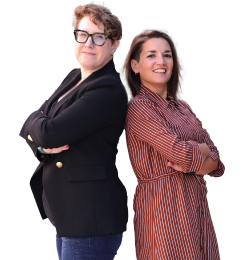Solutions
‘Humane’ and ‘Sustainable’ Fish Labels Seek to Repackage Harsh Realities
Why consumers should beware the latest humane- and green-washing tactic.
Food•7 min read
Solutions
Why consumers should beware the latest humane- and green-washing tactic.
Food•7 min read
Explainer
What makes a food "organic"? One survey found only 20 percent of respondents knew the answer.
Food•9 min read
Explainer
The terms cage-free and free-range may seem very similar but in reality, there are some key differences between the two. Here’s what you need to know.
Food•7 min read
Analysis
At a small, family-run dairy farm near Bath, England, cows are suffering. You wouldn't know that by looking at the label, though. In fact, you might think the opposite.
Food•6 min read
Explainer
Food labels frequently use carefully crafted language that misleads consumers to believe the products are healthier or more sustainable than they actually are.
Food•9 min read
Reported
Meat and dairy producers are targeting increasingly popular plant-based foods by challenging whether or not they can use terms like milk or meat. Will it work?
Food•7 min read
Explainer
More and more consumers are choosing cage-free eggs, but producers are still unsure of what the term even means. That could be bad news for layer hens.
Food•7 min read
Analysis
By not being upfront with consumers, labeling systems are making the industry seem like it is doing more than it actually is to improve animal welfare.
Food•7 min read
Perspective
Modern-day meat advertisements harken back to a time when it was OK to objectify women as body parts. In her new book, Carol J. Adams takes a closer at the…
Food•5 min read
Perspective
For 42 years, Ben & Jerry’s claimed its ice cream came from “happy cows." But when the claim was challenged in court, the company backpedaled, exposing an industry rife with…
Food•4 min read
Perspective
“The steady growth of the plant-based foods industry shows that consumers continue to shift away from animal products towards plant-based options,” said Michele Simone, executive director of the Plant Based…
Food•8 min read
Explainer
Food labeling isn’t nearly as clear, concise, and transparent as it should be. Lots of people are confused about what specific food labels mean, especially those that are often used…
Food•12 min read
Reported
Labeling meat “humane” that is not humane reflects America’s lack of a comprehensive animal welfare policy. And so, the fight continues.
Food•9 min read
You have read 0 articles.

As a fiercely independent, reader-supported news outlet, we’re unswayed by advertisers and profit margins. Your support funds investigative journalism, fact-checked explainers, resources for journalists and partnerships with publishers to boost reporting on the most pressing issues of our time. Read more